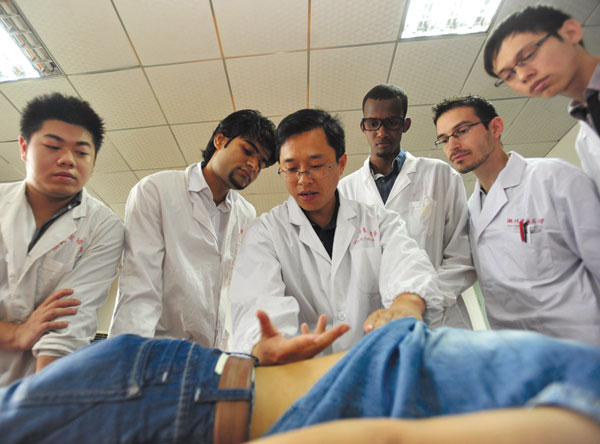TCM gains ground
|
More than 400 foreign students are studying at the Hubei University of Chinese Medicine. [Photo by Xiao YiJiu / Xinhua] |
Her belief was proven correct, because after a few acupuncture treatments in Shanghai, she could walk with minimal pain.
Today, she occasionally visits TCM doctors to ask for herb supplements.
"The herbs the TCM doctors prescribe for me are also very successful. They are good for my general body balance," Winklehner says.
TCM is indeed about balance. TCM believes the human body is an organic and systematic whole, and any illness is a reflection of the body's state of imbalance, which affects the harmony of organs.
The key is to keep a balance within the body and between the body and mind, and to achieve harmony with surroundings.
For many foreigners, that sounds abstract, but not for those who trust TCM.
"The philosophy of TCM is hard for foreigners to understand, because they have a totally different cultural background from ours," says Han Feng, a marketing manager with Beijing's Oriental Inter-Cultural Medical, a TCM clinic targeted at foreign clients.
"But as more foreigners come to China, they become open-minded toward TCM, and are willing to know more about it."
The clinic offers a variety of TCM treatments, including herbs, acupuncture, massage and cupping, with doctors who speak Mandarin, English and Japanese.
Most of their clients are expats from Japan, Europe and the United States, and the clinic has seen an obvious increase of customers in the past years.
"Our patients are very open to learn about TCM when they see our doctors," Han says.
"I think it is because they are interested in natural therapy, and TCM is all about nature and balance."



















